Can there be humour in a couple’s struggle to conceive? A new comedy says ‘yes’ – and I can relate to that
‘Romantic Getaway’ explores what happens when a couple goes to criminal lengths to pay for IVF, and while my story never went so far – I understand their desperation, writes Charlotte Cripps

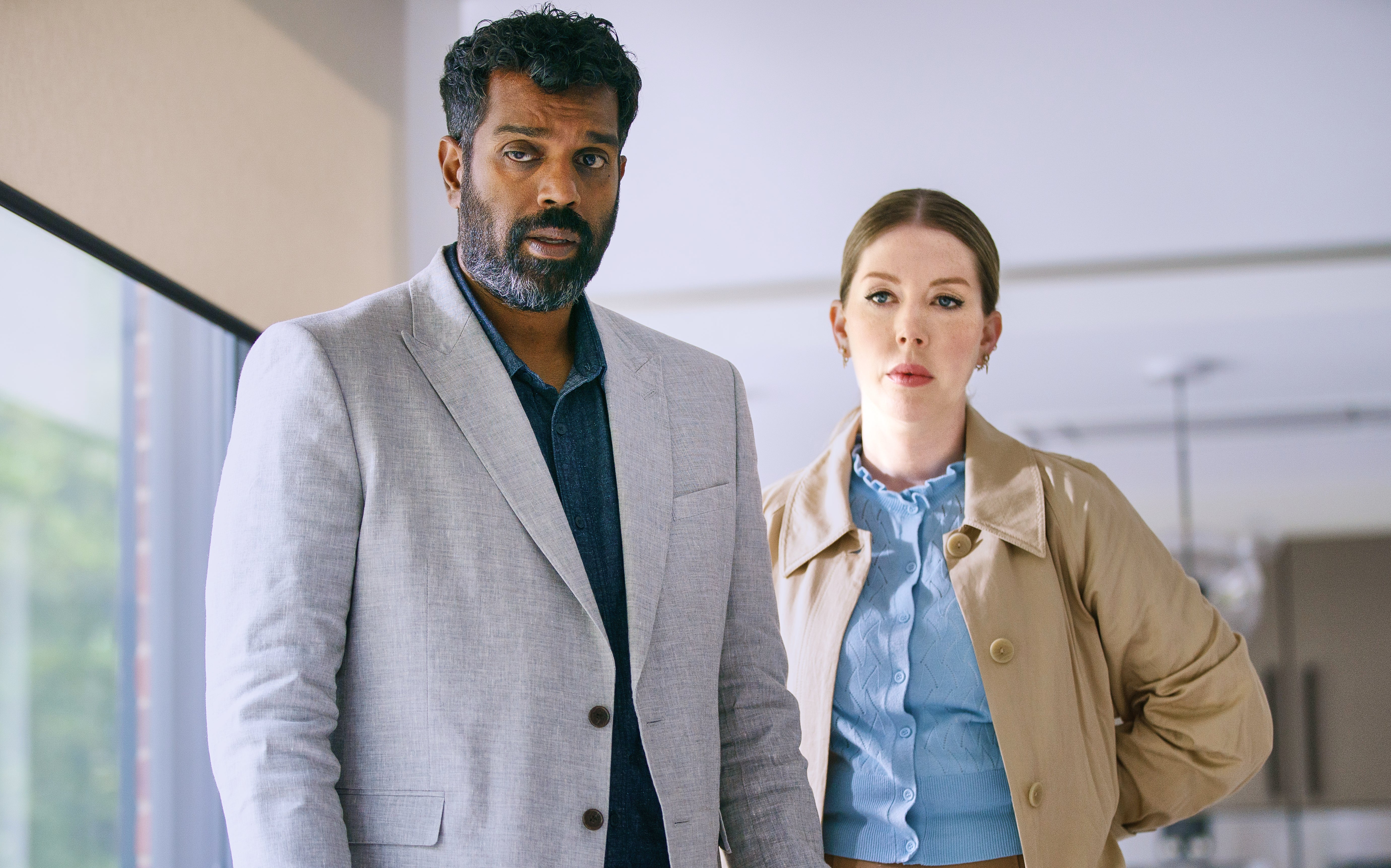
We can’t let this be our last chance,” says Deacon when his partner Allison has a miscarriage in Sky Comedy’s Romantic Getaway. They’ve just had a failed NHS IVF attempt – it’s painful, but what’s the next step?
Katherine Ryan and Romesh Ranganathan star as a couple who steal cash to fund private IVF treatment in this new six-part series that airs on 1 January 2023.
It might sound hard to fathom but I relate to their plight. I might not have gone to those lengths when I was struggling with the cost of private IVF treatment and infertility but I know the fear of cash running out while trying to make it happen.
With one in eight women experiencing infertility and more women wanting to have kids later in life, it’s not surprising there a have been a spate of shows lately about IVF. But is it helpful to watch them if you’re going through the pain of trying to have a baby? Can it ever be funny? Why would somebody like me – who has gone through the sheer hell of infertility – want to watch a couple on TV in the middle of it?
I always managed to find comedy in my situation while dealing with the heartache of one failed pregnancy test after another. The endless IVF sperm samples my partner had to do and the obsession with hormone levels was, after all, quite funny. And I too couldn’t afford IVF like the couple in Romantic Getaway. Luckily for me, I didn’t have to commit a crime though – in the end, a childhood friend stepped in to help and it worked. Now I have two daughters aged four and six. But for Deacon (Ranganathan) and Allison (Ryan), their IVF journey takes them into the criminal underworld.
Co-creators of Romantic Getaway, Ranganathan and Benjamin Green, tell me: “Starting a family can be unbelievably difficult and stressful. We really dug into our shared experiences in the writers’ room with Sarah Morgan and Elaine Grace. We were acutely aware of how tricky it would be to get the balance right of both sensitively dealing with our character’s IVF journey and also keeping in mind that we were also making a fast-paced comedy-drama. But at the very least, if people take one thing from the show, it is probably that stealing from your boss isn’t the answer.”
It’s true that Allison and Deacon’s plan to fund IVF is unconventional, but it does sum up the agony of infertility. IVF is also costly for people who want to have a baby on their own with a sperm or egg donor – or for people in lesbian relationships.
The new series descends into a modern Bonnie and Clyde story. The upbeat couple decide to steal £50,000 from their awful boss Alfie. But Deacon, caught in the moment, adds an extra zero to the transfer taking the total to half a million pounds. Their predicament is now far more stressful than IVF – will they get caught?
In a scene early in the first episode, they are sitting in their car and staring at the USB stick Deacon used to make the bank transfer. “It’s amazing to think that’s what’s going to give us a baby,” he says.
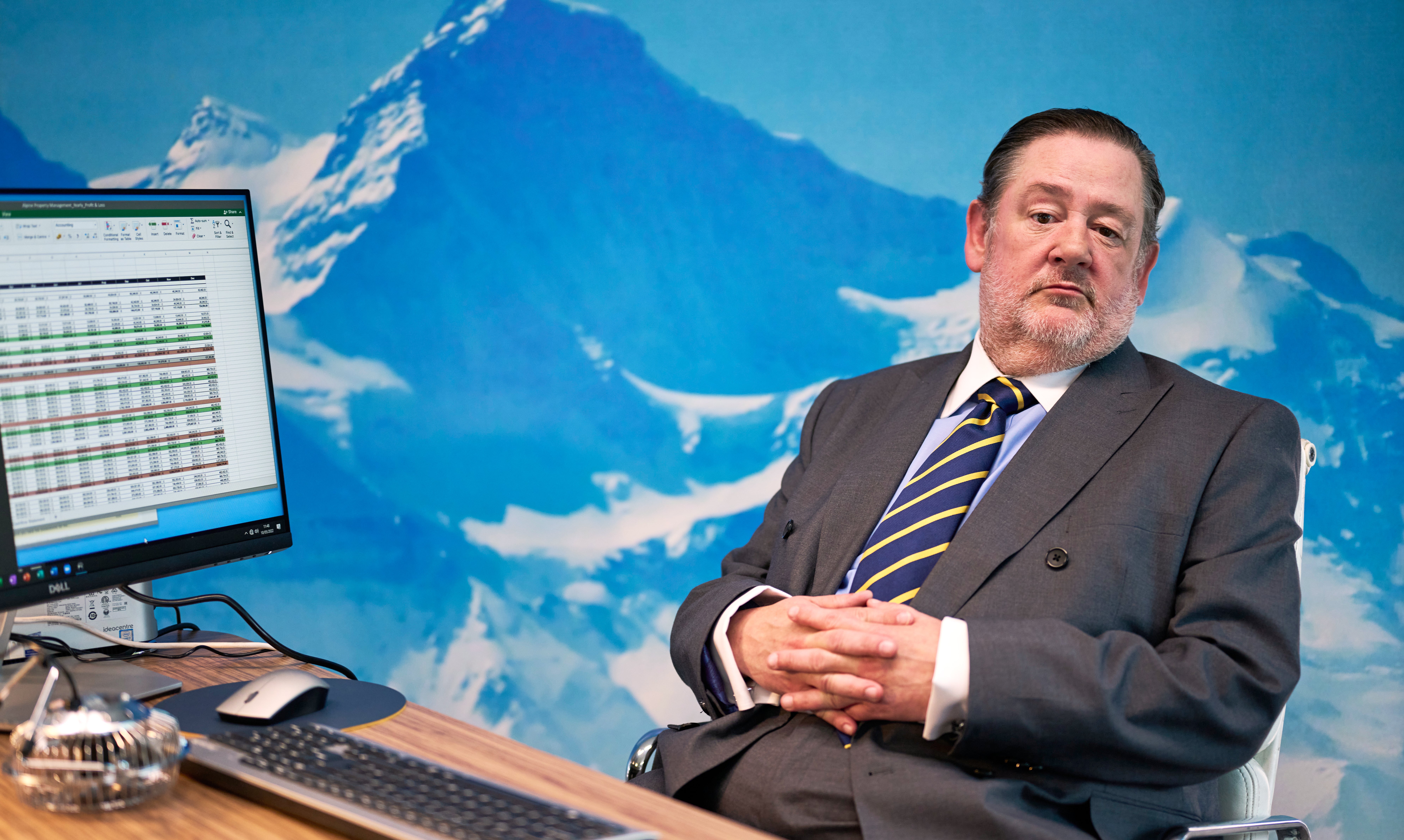
Allison mentions that “ideally” she doesn’t want to have a baby in prison if they get caught, but there’s no going back now. They are in too deep. Allison and Deacon may have broken the law, but they still have that same look of liberation I had when the financial burden of IVF was lifted.
The fancy IVF clinic, Allison has found “guarantees success”. She’s as misguided about that as she is about stealing the money. There is no secret ingredient. However much money is thrown at IVF – for me, it was more than £8,000 per cycle in the UK – the reality is some women will never have a baby.
Allison is soon ensconced in the sterile-looking Wimpole Fertility Clinic. The private doctor confirms with her that her previous attempts were on the NHS – and asks if anybody has explained about her hormone levels and how they affect her chances of conceiving.
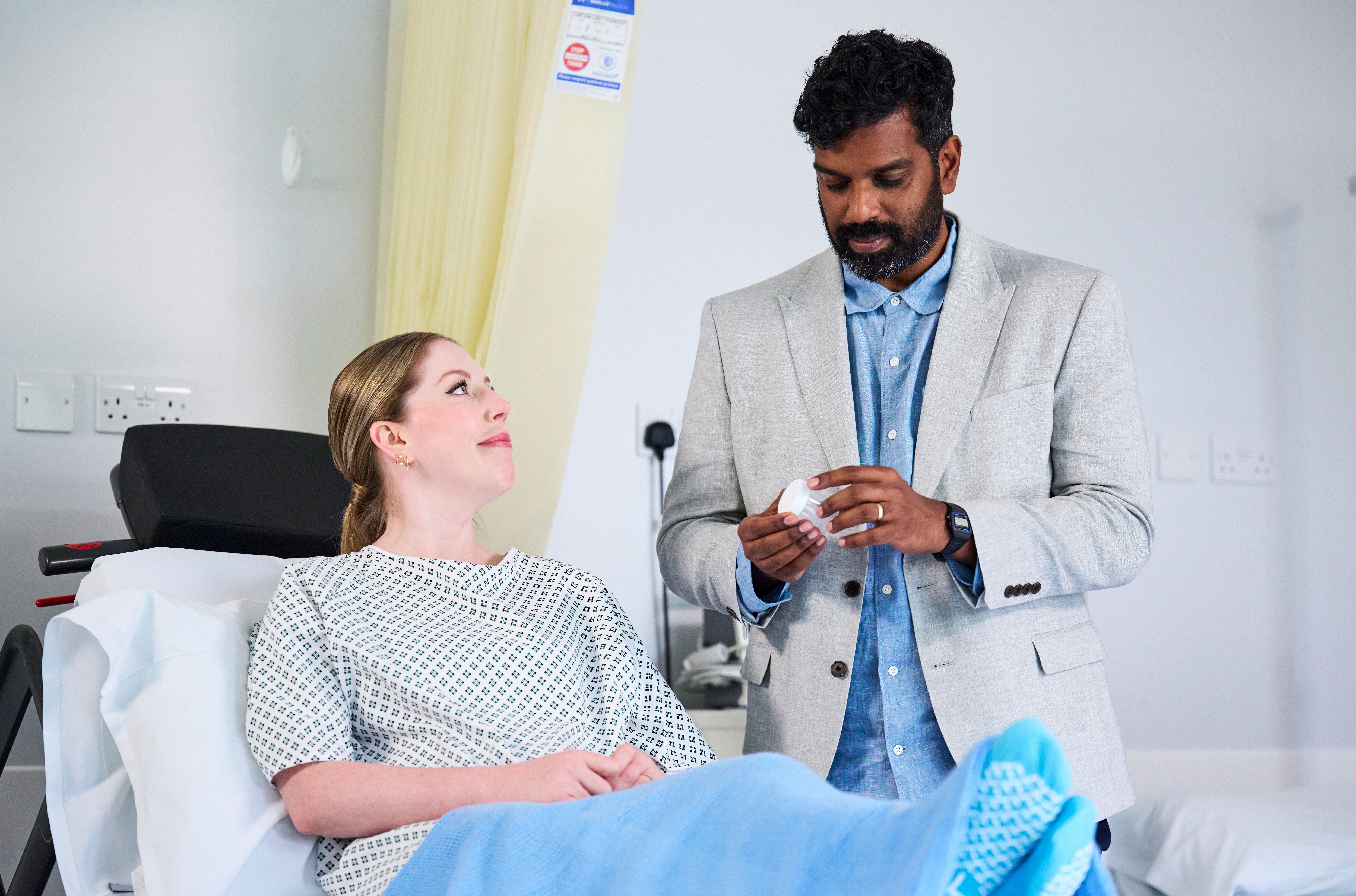
It’s like a trip down memory lane for me; I had the exact same conversation. Allison is under the impression she has a 30 per cent chance of getting pregnant, but the private doctor doesn’t look too hopeful about that. He announces that her “ovarian reserve is low”. How I hated hearing those words when I was told the same. She would be lucky to get one, or two eggs from the IVF retrieval, and “even then your eggs will be of questionable quality” she’s told. She looks crestfallen – just like I did. And just like Allison, I was “locked into full-price IVF” after the first injection, despite my low chances of success. I was lucky if they retrieved one or two eggs too.
It’s no fun being caught up in the merry-go-round of IVF – how can you stop if you have the funds? I remember picking myself up from the floor and saying to the doctor with positivity: “Let’s do it” – just like Allison does. Allison claims the doctor “was brutal about her chances of conceiving”. They have to be or it’s unethical. And, like her, I hid this information from my partner. “We’ve done all this and my body might be the thing that f**** it all up,” she says. It’s much easier to blame the previous IVF clinics than one’s own body.
While Allison’s solution is, “we are running out of time – we have to go to that posh clinic”, mine was the opposite. I needed to leave the posh clinics in the UK for cheaper ones in Europe – where IVF treatment was then a quarter of the price.
The more IVF I did, the more chance I had of conceiving, was how I saw it. If I could do three cycles in Spain – or Russia – for the same cost as one in the UK at that time, it was a no-brainer. We all do what we have to do, but Deacon and Allision take it too far.
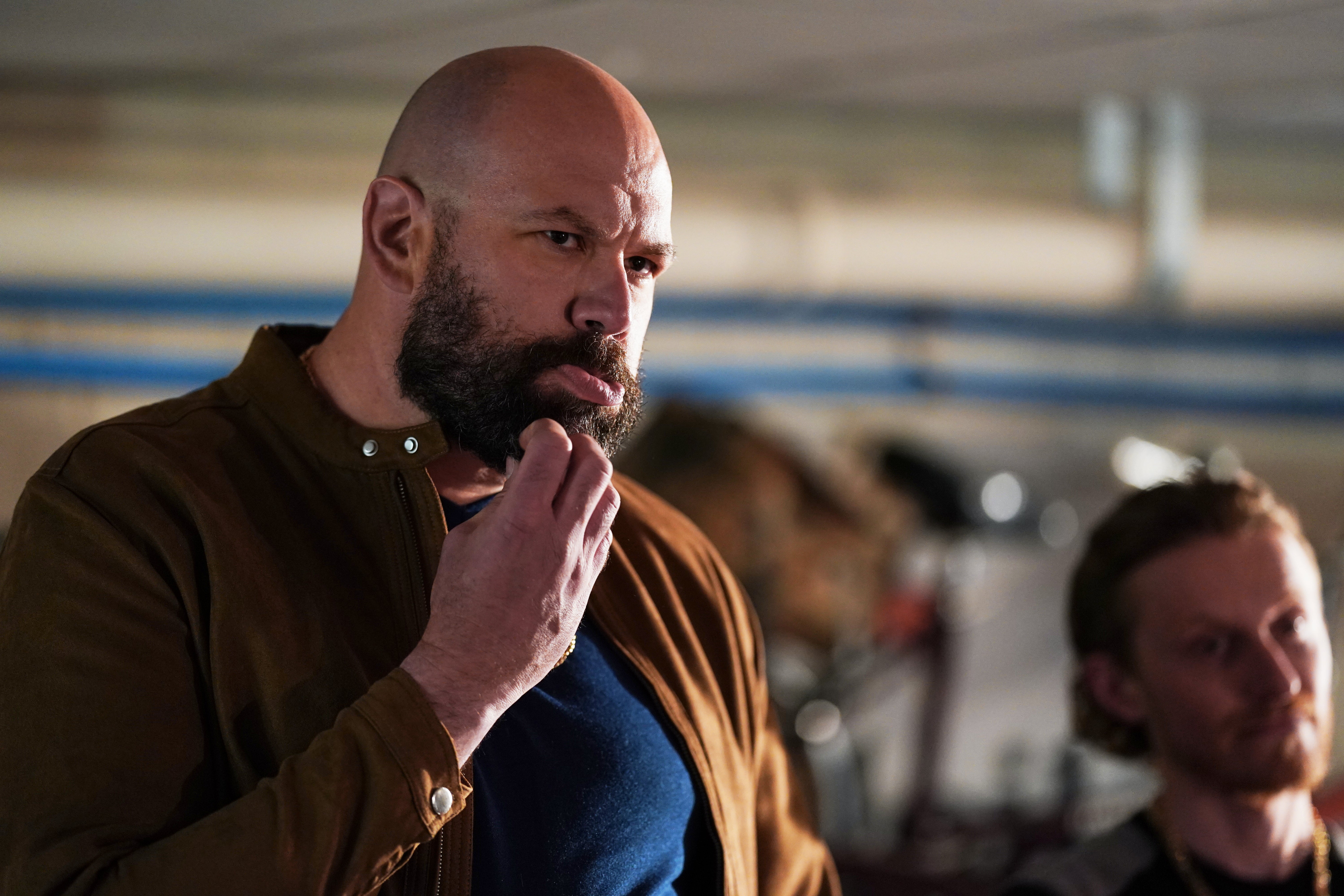
Romantic Getaway isn’t the first TV show or film about IVF – but how well is it covered on screen?
Apple TV+’s Trying (2020), about a London couple who desperately wants a child, also vividly captures the turmoil of what it feels like to keep trying for a baby. Jason (Rafe Spall) and Nikki (Esther Smith) have just used up their one and only NHS IVF cycle – it didn’t work. It’s heartbreaking. Their next step is adoption – it’s just as complex a process as IVF. They’ve tried everything including timing sex for an ovulation window. When Nikki realises she got her fertile days mixed up, she insists that Jason has sex with her on a double-decker bus right away. “Every hour, the chances go down,” explains Nikki in total desperation.
There have been other comical yet painfully moving TV shows and films about infertility. Netflix’s Danish romcom Baby Fever (2022), about fertility, choices, parenthood and love, follows fertility doctor Nana (Josephine Park) and her IVF patients. Things get messy when she gets drunk and inseminates herself with her ex-boyfriend’s sperm after breaking into the sperm bank. Her secret pregnancy might allow her to see patients in a new light – but it also causes huge romantic problems.
Baby Fever creators, Amalie Naesby Fick and Nikolaj Feifer, call the show a “personal, comic, hard, surprising story about fertility treatment”.
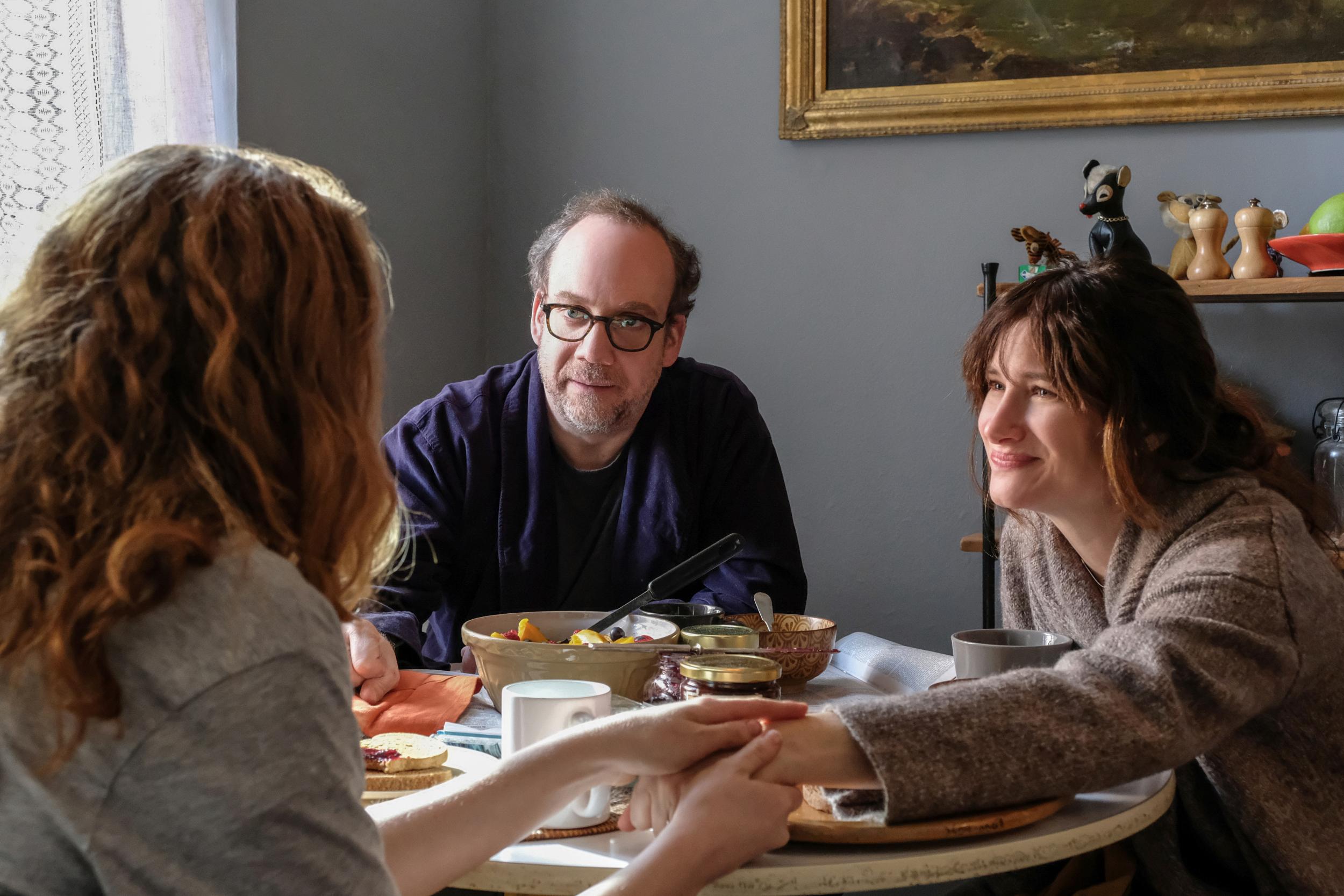
“Being in fertility treatment is insanely tough,” they say. “We know that because we’ve been through it ourselves. But it can also be an experience of hope and joy and laughter, it can throw one around in so many different emotions in such a short time. That’s why we want to make a series where the drama and the comedy always exist together because that’s our experience of a fertility process.”
One of the most realistic portrayals of infertility is in Netflix’s comedy-drama Private Life (2018), starring Paul Giamatti and Kathryn Hahn as a New York couple in their forties struggling with IVF. It clearly shows the impact that infertility has on their marriage – a strain any couple struggling to conceive will understand – as well as the way the people closest to them deal with it.
The story is meant to have been inspired by the writer and director Tamara Jenkins’s own infertility journey, which makes it so true to life on screen.
The one-off episode of 2020’s BBC One’s sitcom Bumps follows Anita (Amanda Redman), a 62-year-old woman who is secretly undergoing IVF treatment. She gets pregnant via IVF with the help of an egg and sperm donor before finding out that her 38-year-old daughter is also pregnant. Viewers appeared desperate for the BBC to commission a series, but, according to one review, it was an “intriguing enough premise” but became a “nonsensical jumble”.
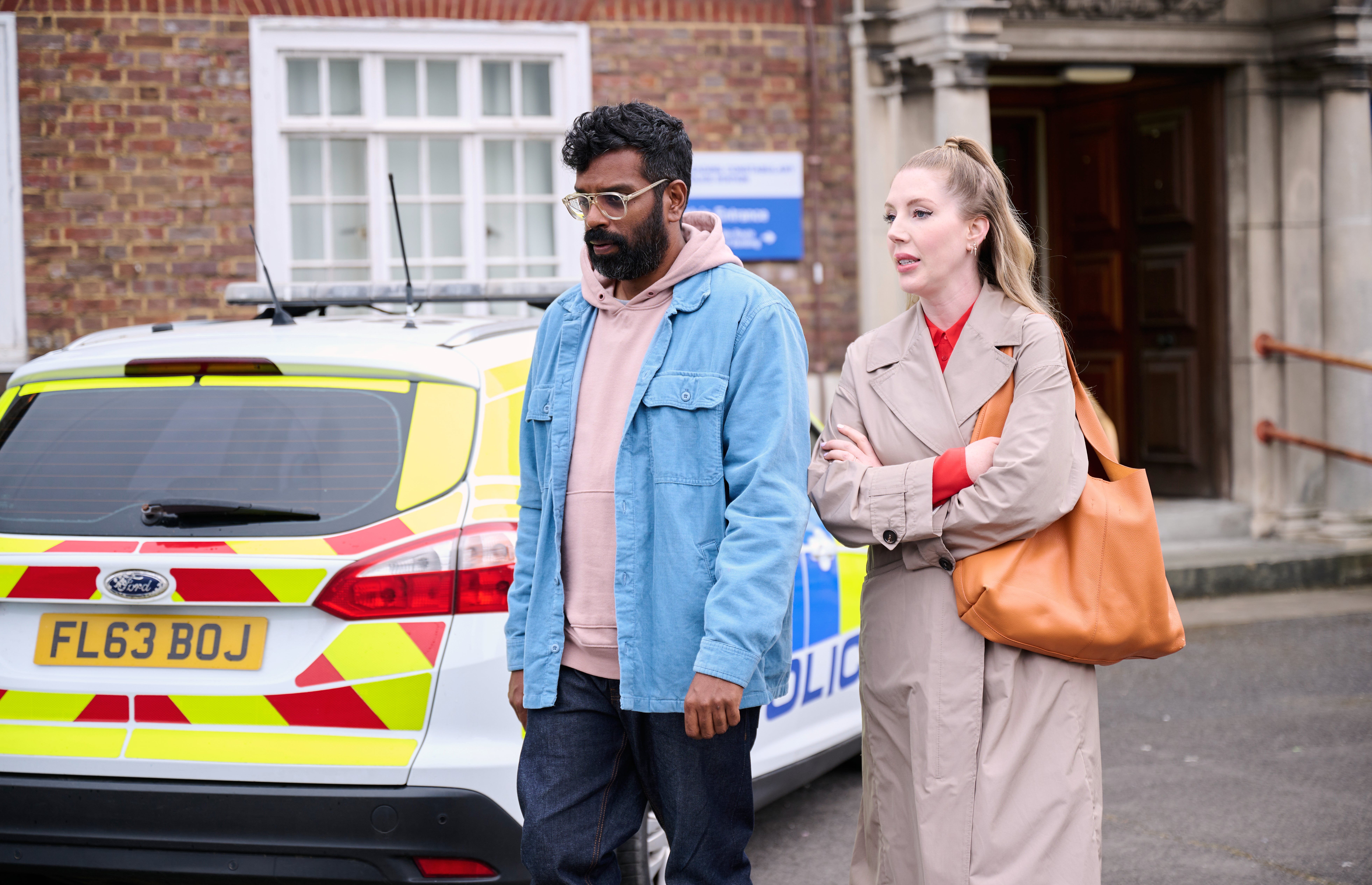
In The Switch, a 2010 romcom starring Jennifer Anniston as a thirtysomething single woman who wants a baby with a sperm donor, the donated sperm gets mixed up at an insemination party, rather than in an IVF clinic.
The 2006 medical drama, Family Man on BBC One, starred Trevor Eve as the charismatic fertility doctor Dr Patrick Stowe at the private Wishart Fertility Clinic, which has recently celebrated its 2000th live birth. The drama which was billed as “a moving journey through the joys and sorrows of trying to have a baby through IVF” follows four couples facing fertility issues who turn to Dr Stowe to make their baby dreams come true.
While in 2008’s romcom Baby Mama, a successful single businesswoman Kate (Tina Fey) who is 37, tries IVF but her T-shaped uterus makes success unlikely. She decides to try surrogacy.
Sex and the City’s Charlotte also deals with infertility. She tries IVF, acupuncture and timed sex. Eventually, after remarrying she adopts a child, and then as if by a miracle, she later gets pregnant.
It’s good that TV shows and films depict the emotional and physical toll of IVF. There isn’t always a pregnancy at the end of it as we see, but sometimes they end with adoption instead.
But it all helps to understand that if you want a child, it’s possible. It’s also a reminder for me of how lucky I am to be on the other side, having been told my chances of conceiving were next to none. In Romantic Getaway, Allison starts to doubt if she even wants a baby. It’s hardly surprising. After all, they’ve got other problems – they are on the run from the law.
‘Romantic Getaway’ will air on Sky Comedy and Now on New Year’s Day




Join our commenting forum
Join thought-provoking conversations, follow other Independent readers and see their replies
Comments